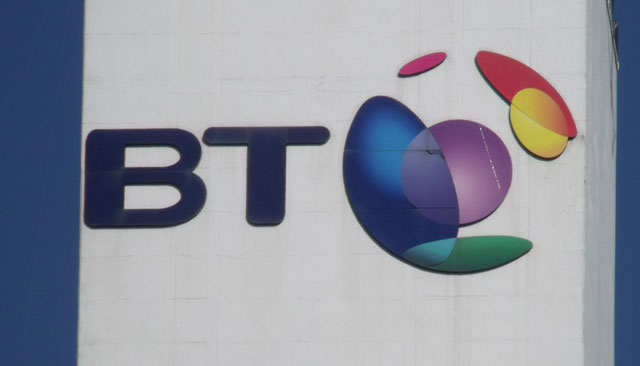
There have frequently been calls for BT, the former telecoms monopoly, to be broken up. Now, with the company having emerged as the buyer of mobile phone network EE, complaints about BT’s power — which have never gone away — have grown louder.
But other than competitors’ chagrin, is there any evidence that breaking up BT would deliver a better phone and Internet service for customers?
By virtue of its history, BT owns and manages almost all the telephone and broadband cables and exchanges in the country (which other service providers must pay to access) while also offering its own competing home and business packages to customers. Operating from an advantageous position, competitors such as Sky and TalkTalk might say.
These concerns were previously tackled by telecoms regulator Ofcom in 2005, when it required BT to separate its broadband and phone network access services by creating Openreach, an arms-length division of BT that handles the national broadband network. Openreach is required by Ofcom to offer the same terms to competing firms as it does to BT in order to provide a level playing field — a process generally known as local-loop unbundling.
Consequently, even though Sky and TalkTalk have respectively 20% and 15% of the UK broadband market, this is only made possible because they can use the Openreach network to connect their customers. This is because, unless anyone else embarks on a hugely ambitious (and unnecessary) cable-laying project, it’s essentially the only telephone network there is. In contrast, BT has a 31% market share.
Mobile phone operator Vodafone is soon to enter the market as it gears up to offer domestic broadband services using Openreach’s network, and also its own national infrastructure acquired through the purchase of Cable &Wireless Worldwide in 2012.
The concern expressed by Sky and TalkTalk is that by being part of the BT Group, Openreach is too influenced by the strategic decisions of its parent. This in turn, they argue, can result in an underinvestment in the UK’s broadband infrastructure — to the detriment of their own business as they are totally reliant on Openreach to deliver services. Such under-investment could worsen, they claim, as BT has to find £12,5bn to pay for its acquisition of EE. But these ignore the strict regulatory framework imposed by Ofcom and under which Openreach must operate.
So, should the UK’s broadband network be managed by a totally separate and independent company, along the lines of Network Rail (railways) or National Grid (electricity and gas), by taking Openreach off BT?
Before we consider that question, we must recognise another important player in the mix: Virgin Media has a 20% share of the UK broadband market but delivers services over its own cable TV network built during the 1990s — a market to which BT was denied access in order to stimulate competition. Virgin Media’s new owner, US firm Liberty Global, has recently sanctioned a £3bn investment to expand its network reach by a third. But there is no obligation from Ofcom for Virgin Media to offer access to its network for other providers: if Openreach becomes independent, what should happen to the 20% market share based on infrastructure owned by Virgin Media?
Equally, what do you do about the growth in mobile broadband? With 4G connectivity speeds now rivalling those available on some domestic broadband connections, it’s clear there’s going to be significant growth in this area and new competition. So should mobile broadband access also be brought under the wing of a National Grid-style company?
Sky and TalkTalk clearly have a vested interest, hoping that an independent Openreach will mean lower prices for them — but not necessarily for consumers. On the other hand, BT is unlikely to want to divest itself of Openreach, which currently generates almost 30% of its revenue. Complicating any potential break up would be the question of how a much smaller BT would then be able to support its pension scheme — already a cool £7bn in the red.
In the 10 years since Ofcom’s first strategic review of digital communications, the telecoms landscape and consumers’ Internet use have changed enormously. While the UK may well have lagged behind Europe in broadband access speed for much of that time, there is clear evidence that things are improving for it. Competition, regulation, investment and government initiatives to tackle difficult areas such as rural connectivity are helping to broadly improve performance.
So extricating Openreach from BT won’t necessarily change anything. It’s already heavily regulated by Ofcom, and that would continue. If service providers believe an independent Openreach will drive down prices, then where will the investment required to further expand the high-speed fibre and future G.Fast networks come from? And how should one compare the domestic broadband services from Openreach with cable and mobile operators’ services?
Limiting one’s consideration to BT is to see only part of the overall picture. Hopefully Ofcom’s new strategic review will take a much wider view.![]()
- Nigel Linge is professor of computer networking and telecommunications at the University of Salford
- This article was originally published on The Conversation

